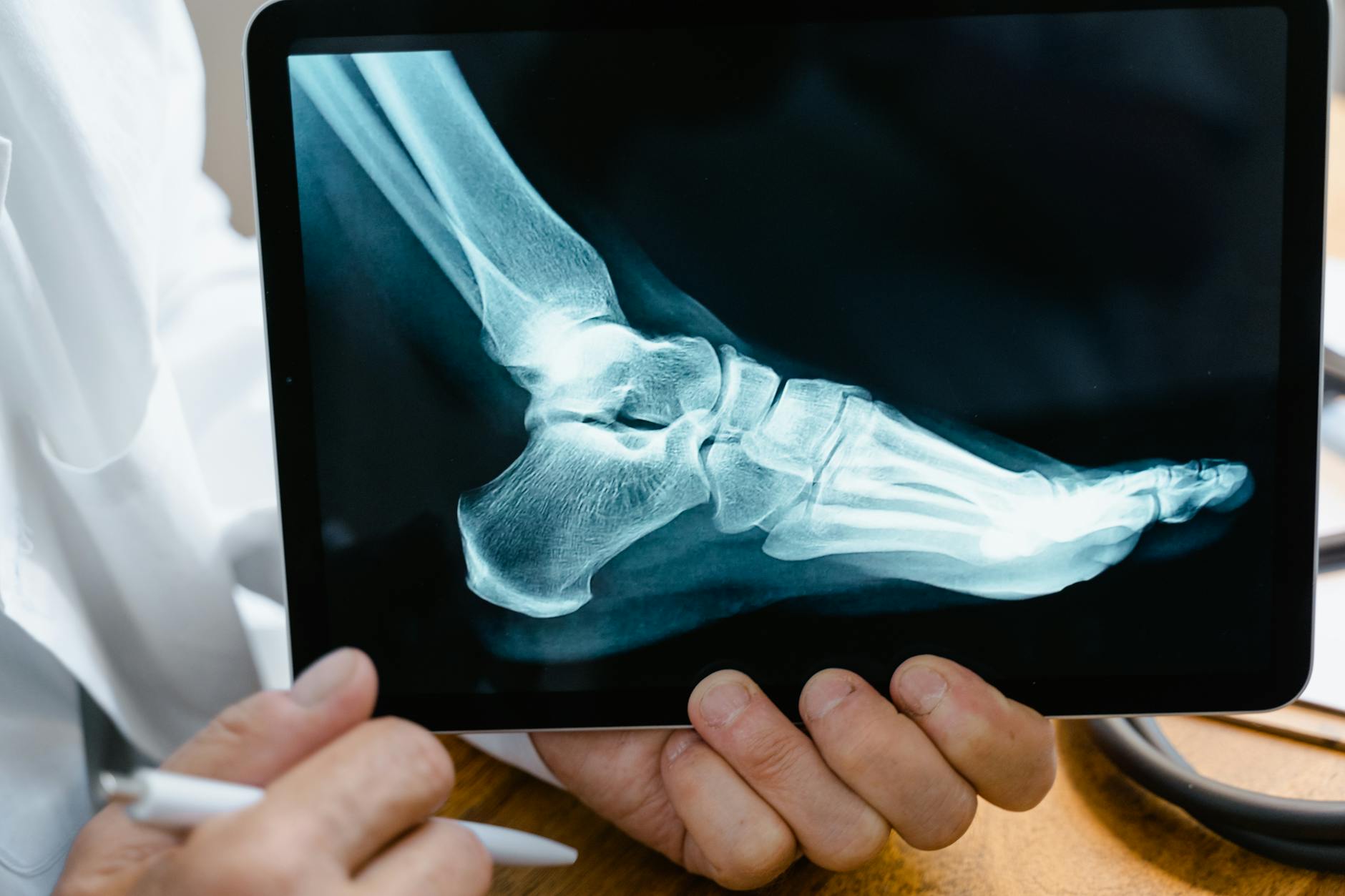Annual Check-Up Checklist: What Tests You Need by Age Group
🚨 Are you up-to-date with your health screenings? 🚨
In the hustle and bustle of daily life, it’s easy to overlook our health until something goes wrong. But what if you could prevent major health issues before they even start? That’s where annual check-ups come in. However, not all health screenings are created equal, and what’s essential for a 25-year-old might be completely different from what a 65-year-old needs.
Navigating the world of preventive healthcare can feel overwhelming. With conflicting advice and an ever-growing list of potential tests, how do you know which ones are truly necessary for you? Don’t worry – we’ve got you covered. In this comprehensive guide, we’ll break down the essential health screenings by age group, ensuring you’re armed with the knowledge to take control of your health at every stage of life.
From young adults just starting their health journey to seniors looking to maintain their vitality, we’ll explore the key tests for each age group, general health checks that benefit everyone, and how to personalize your check-up for optimal results. Let’s dive in and discover exactly what you need to stay on top of your health game! 💪🩺
Essential Health Screenings for Young Adults (18-39)

Blood Pressure and Cholesterol Checks
Regular blood pressure and cholesterol checks are crucial for young adults to maintain cardiovascular health. These tests can help detect early signs of hypertension and high cholesterol, which are risk factors for heart disease.
| Test | Frequency | Importance |
|---|---|---|
| Blood Pressure | Annually | Detects hypertension early |
| Cholesterol | Every 4-6 years | Assesses heart disease risk |
Skin Cancer Screening
Young adults should prioritize annual skin cancer screenings, especially if they have:
- Fair skin
- Family history of skin cancer
- Excessive sun exposure
Self-examinations and professional dermatologist check-ups can help detect melanoma and other skin cancers in their early stages.
Sexual Health Tests
Regular sexual health screenings are essential for sexually active young adults. These may include:
- STI tests (chlamydia, gonorrhea, HIV)
- Pap smears for women (starting at age 21)
- HPV vaccination (if not received earlier)
Mental Health Assessment
Mental health is equally important as physical health. Young adults should consider annual mental health screenings to:
- Assess stress levels
- Screen for depression and anxiety
- Evaluate overall emotional well-being
Now that we’ve covered essential screenings for young adults, let’s explore the key tests recommended for middle-aged adults.
Key Tests for Middle-Aged Adults (40-64)

A. Diabetes Screening
Regular diabetes screening becomes crucial as we age. For middle-aged adults, the American Diabetes Association recommends:
- Screening every 3 years for those without risk factors
- Annual screening for those with risk factors (e.g., obesity, family history)
| Test Type | Frequency | Normal Range |
|---|---|---|
| Fasting Plasma Glucose | Every 3 years | Below 100 mg/dL |
| A1C | Every 3 years | Below 5.7% |
B. Mammograms and Prostate Exams
Gender-specific screenings are vital during this age range:
- Women: Annual or biennial mammograms starting at age 40
- Men: Discuss prostate-specific antigen (PSA) testing with your doctor starting at 50
C. Colorectal Cancer Screening
Colorectal cancer risk increases with age. Recommended screenings include:
- Colonoscopy every 10 years
- Fecal immunochemical test (FIT) annually
- Flexible sigmoidoscopy every 5 years
D. Bone Density Test
Osteoporosis becomes a concern, especially for women post-menopause:
- DEXA scan recommended for women 65+ or earlier if risk factors present
- Men should discuss with their doctor, typically starting at 70
E. Vision and Hearing Tests
Regular check-ups help detect age-related changes:
- Vision: Comprehensive eye exam every 2-4 years
- Hearing: Baseline test at 50, then every 3 years
As we move into our senior years, these screenings become even more critical, and additional tests may be necessary to maintain optimal health.
Crucial Screenings for Seniors (65+)

Cognitive Function Assessment
As we age, monitoring cognitive health becomes increasingly important. Regular cognitive assessments can help detect early signs of dementia or Alzheimer’s disease. These tests typically involve:
- Memory recall exercises
- Problem-solving tasks
- Attention span evaluations
Early detection allows for timely interventions and better management of cognitive decline.
Fall Risk Evaluation
Falls are a significant concern for seniors, often leading to serious injuries. A comprehensive fall risk assessment includes:
| Test | Purpose |
|---|---|
| Balance tests | Evaluate stability |
| Gait analysis | Assess walking patterns |
| Muscle strength checks | Identify weaknesses |
| Medication review | Identify drugs that may increase fall risk |
Cardiovascular Health Tests
Heart health remains crucial for seniors. Key cardiovascular screenings include:
- Blood pressure monitoring
- Cholesterol level checks
- Electrocardiogram (ECG)
- Stress tests (if recommended by a physician)
Regular cardiovascular screenings can help prevent heart attacks and strokes, common health concerns in this age group.
Osteoporosis Screening
Bone density naturally decreases with age, making osteoporosis a significant risk for seniors. Dual-energy X-ray absorptiometry (DEXA) scans are typically recommended to assess bone density and fracture risk. Early detection can lead to preventive measures and treatments to maintain bone health and reduce the risk of fractures.
General Health Checks for All Ages

Body Mass Index (BMI) Measurement
BMI is a crucial health indicator for all age groups. It’s a simple calculation based on height and weight that helps assess body fat content. While not perfect, BMI provides a quick snapshot of potential health risks.
| BMI Range | Classification |
|---|---|
| Below 18.5 | Underweight |
| 18.5 – 24.9 | Normal weight |
| 25.0 – 29.9 | Overweight |
| 30.0 and above | Obese |
Regular BMI checks can:
- Track weight changes over time
- Indicate potential health risks
- Guide lifestyle and dietary choices
Vaccinations and Immunizations
Staying up-to-date with vaccinations is vital for all ages. Common vaccinations include:
- Annual flu shot
- Tetanus booster (every 10 years)
- HPV vaccine (for those under 45)
- Shingles vaccine (for those over 50)
Thyroid Function Tests
Thyroid disorders can affect people of all ages. Regular thyroid function tests are essential for:
- Detecting hypothyroidism or hyperthyroidism
- Monitoring existing thyroid conditions
- Assessing overall metabolic health
These tests typically measure:
- TSH (Thyroid Stimulating Hormone)
- T4 (Thyroxine)
- T3 (Triiodothyronine)
Now that we’ve covered these general health checks, let’s explore how to personalize your check-up based on individual factors.
Personalizing Your Check-Up

Family History Considerations
When personalizing your annual check-up, it’s crucial to consider your family health history. Certain genetic factors can significantly influence your risk for various conditions. Here’s a breakdown of how family history impacts screening recommendations:
| Condition | Family History Impact | Recommended Action |
|---|---|---|
| Heart Disease | Increased risk if close relatives affected | Earlier and more frequent cardiovascular screenings |
| Diabetes | Higher likelihood if parents or siblings have it | Regular blood glucose testing from a younger age |
| Cancer | Certain types run in families | Specific cancer screenings at earlier ages |
| Osteoporosis | Genetic component in bone density | Earlier bone density scans |
- Discuss your family health history in detail with your healthcare provider
- Update your family health history regularly as new information becomes available
- Be prepared to start certain screenings earlier based on your genetic risk factors
Lifestyle-Based Screenings
Your lifestyle choices play a significant role in determining which health screenings are most relevant for you. Consider the following factors:
- Diet and exercise habits
- Smoking and alcohol consumption
- Occupation and potential workplace exposures
- Stress levels and mental health
Based on these factors, your doctor may recommend additional tests such as:
- Lung cancer screening for long-term smokers
- Liver function tests for those with high alcohol consumption
- Skin cancer checks for individuals with high sun exposure
- Stress tests or mental health evaluations based on lifestyle factors
Gender-Specific Tests
Certain health screenings are unique to each gender. Here’s a quick overview:
For women:
- Regular mammograms and breast exams
- Pap smears and HPV tests
- Bone density scans, especially post-menopause
For men:
- Prostate cancer screenings
- Testicular self-exams and check-ups
Remember, these gender-specific tests should be incorporated into your personalized check-up plan based on your age, risk factors, and doctor’s recommendations. Now that we’ve covered how to personalize your check-up, let’s recap the key points to remember when scheduling your annual health assessment.

Your annual check-up is a vital opportunity to assess your health and catch potential issues early. By following age-appropriate screening guidelines, you can take proactive steps towards maintaining your well-being. From young adults focusing on sexual health and mental wellness to seniors prioritizing cognitive function and bone density, each age group has specific health concerns to address.
Remember, these recommendations serve as general guidelines. Your individual health history, lifestyle, and risk factors play a crucial role in determining which tests are most appropriate for you. Consult with your healthcare provider to create a personalized screening plan that addresses your unique needs and ensures you’re on track for optimal health at every stage of life.







